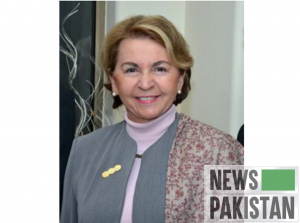KARACHI: World Suicide Prevention Day (WSPD) was established in 2003 by the International Association for Suicide Prevention in conjunction with the World Health Organization (WHO).
The 10 September each year aims to focus attention on the issue, reduces stigma and raises awareness among organizations, governments, and the public, giving a singular message that suicides are preventable.
“Creating Hope Through Action”
Suicide is a major public health problem with far-reaching social, emotional and economic consequences.
It is estimated that there are currently more than 700 000 suicides per year worldwide, and we know that each suicide profoundly affects many more people.
“Creating Hope Through Action” is the triennial theme for the World Suicide Prevention Day from 2021-2023. This theme serves as a powerful call to action and reminder that there is an alternative to suicide and that through our actions we can encourage hope and strengthen prevention.
By creating hope through action, we can signal to people experiencing suicidal thoughts that there is hope and that we care and want to support them. It also suggests that our actions, no matter how big or small, may provide hope to those who are struggling.
Lastly, it serves as a reminder that suicide prevention is a public health priority and urgent action is required to make sure suicide mortality rates are reduced. WHO will continue to work with its partners to support countries to take concrete measures in this direction.

In Pakistan at Lahore, health experts have emphasized the importance of commitment and proactive measures in the context of World Suicide Prevention Day.
Notably, this year’s theme is ‘Creating Hope through Action.’
Dr. Sultan M. Abid, the Director of Medical Services at Fountain House, underscored the significance of this year’s theme as a compelling call to action.
He reminded us that there are viable alternatives to suicide, and by taking action, we can foster hope and bolster prevention efforts.
Dr. Iftikhar, former Mayo Hospital Medical Superintendent, stressed the need to raise awareness among the public about effective ways to address social and psychological issues.
Individuals facing a multitude of socioeconomic factors may experience both support and obstacles to their recovery.
These complexities add intricacy to the evaluation of the effectiveness of services, treatments, and support systems.
Recent research highlights suicide as a significant global health concern, constituting 1.4 percent of all worldwide deaths.
The majority of suicides are associated with psychiatric illnesses, particularly depression, substance use disorders, and psychosis, which are the most prominent risk factors.
Nonetheless, anxiety, personality, eating, and trauma-related disorders, along with organic mental disorders, also contribute to this grave issue.
Urgent research into risk factors among individuals with mental disorders is imperative in our efforts to predict and prevent suicide deaths.
APP/WHO/Newspakistan.tv











